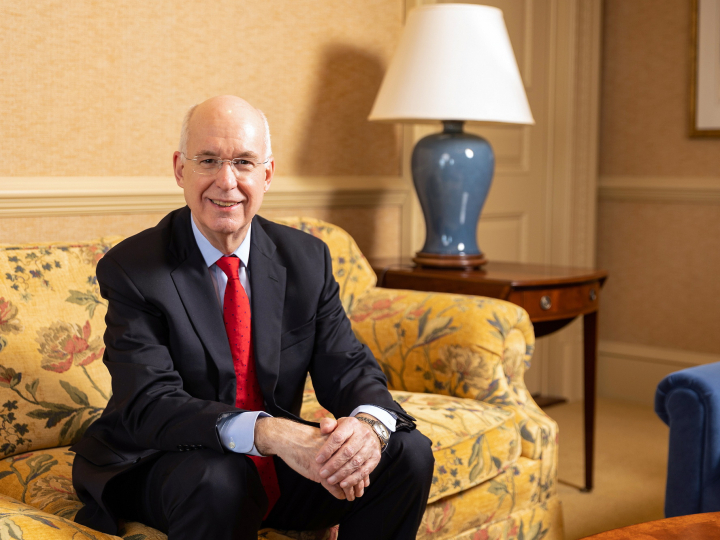At Bucknell, Ben & Jerry’s Co-founder Shares the Inside Scoop on Company Ethics
September 21, 2017
Whenever he addresses an audience, there's one question "everybody" asks Ben & Jerry's co-founder Jerry Greenfield.
For the record, the answer is Americone Dream, which Greenfield said has the perfect balance of vanilla ice cream with bits of waffle cone and a caramel swirl. But Greenfield shared a lot more than his favorite flavor during his lecture Sept. 18 at the Weis Center for the Performing Arts at Bucknell University.
In just a few minutes, his fast-moving speech tracked Ben & Jerry's' explosive growth from the day he met partner Ben Cohen in a 7th-grade gym class ("we were the two slowest, fattest kids in the class"); to the 1978 opening of their first shop at a former gas station in Burlington, Vt., with $12,000 and a secondhand ice-cream machine; to the sale of the company to Unilever for $325 million in 2000 (the co-founders still serve an advisory role).
Along the way, Greenfield said, he and Cohen went from taking on one corporate giant — in their company's "What's the Doughboy Afraid Of?" feud over distribution access with Häagen-Dazs owner Pillsbury — to the sudden recognition they'd become business titans themselves.
"We realized we were not ice cream guys — we were becoming businessmen," Greenfield said. "We felt like our business was becoming a cog in the economic machine. We were like everyone else and we didn't want to be like that."
Their solution, Greenfield explained, was to change the way they measured success, considering not only how much profit the company could earn, but also how much good they could do in the communities they serve.
The company began measuring this "double bottom line," and has published an annual social impact report since 1988. Ben & Jerry's' first public stock offering was made available exclusively to Vermont residents and at an affordable price, allowing Greenfield and Cohen to enrich their neighbors as the company's value grew. They also started a foundation to give back more and sought out partners with a social mission, both to operate Ben & Jerry's franchises and to supply ingredients. In both cases, Greenfield noted that the addition of a social good did not come at the expense of the company's bottom line or shareholder value. The company's concern, Greenfield said, was "How can we integrate social and environmental concerns into our normal business operations?"
The impact, in fact, was a positive one; consumers have embraced the company's do-good mission and hippie ethics.
"What we've been learning at Ben & Jerry's is that there is a spiritual aspect to business, just as there is to the lives of individuals," Greenfield added. "As you help others, you are helped in return."
Following his speech, Greenfield shared the bounty with the audience, inviting attendees to nosh on Ben & Jerry's ice cream — he brought Totally Baked, Phish Food and vegan non-dairy PB and Cookies — and perhaps find their own favorite flavor.
Greenberg was invited to speak at Bucknell by students and his address was presented by the Student Lectureship Committee. Previous student lectureship speakers include Bill Nye the Science Guy, Breaking Bad co-star R.J. Mitte and Humans of New York photographer Brandon Stanton.

